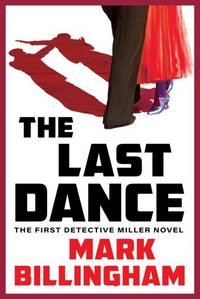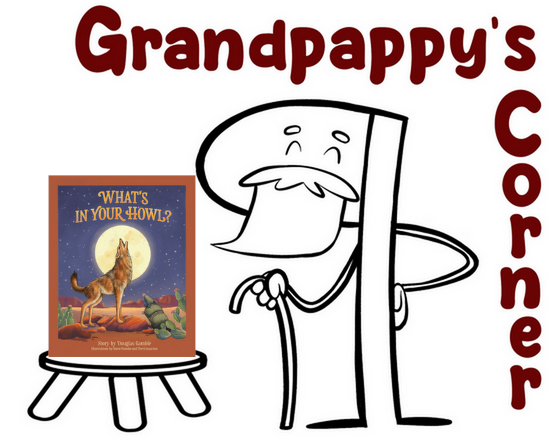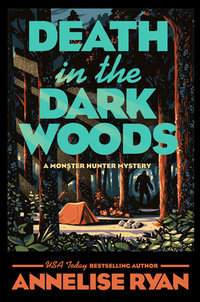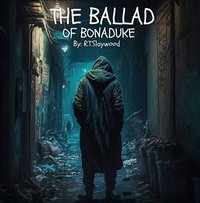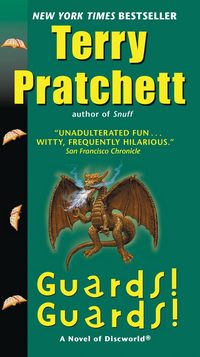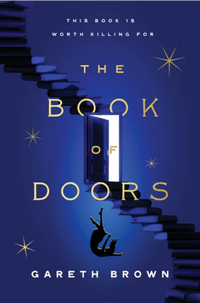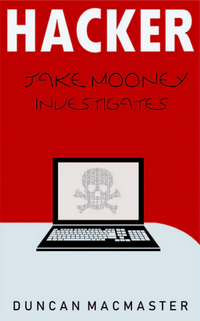I’ve been fairly scatterbrained the last couple of days, and I’m a little worried that this post reflects that too heavily. Hopefully not.
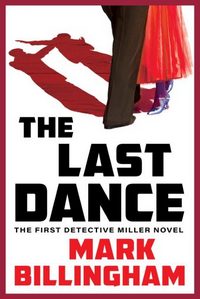 The Last Dance
The Last Dance
DETAILS: Series: Detective Miller, #1 Publisher: Atlantic Monthly Press Publication Date: July 4, 2023 Format: Hardcover Length: 378 pg. Read Date: December 4-7, 2023

It was true that Miller wanted to be busy; but he hadn’t been counting on picking up such a big case on his first day back. That was the way things went, though. You were desperate for a day or two to catch your breath or even just looking to recharge your batteries after a major inquiry and someone decided to poison their husband or stab a passer-by because they didn’t like their trainers.
People were so bloody inconsiderate, sometimes.
What’s The Last Dance About?
Detective Sergeant Declan Miller cuts off his bereavement leave to return to work. It may be too soon following the murder of his wife (and we get plenty of reason to think that it may be), but the time off isn’t doing him any good and accomplishing things, staying busy, and getting out of the house just might do him so good (and we get plenty of reason to think that it might).
Before he has a chance to reacclimate, he and his new partner are assigned a case—the son (and presumed heir) of a local crime boss has been killed—assassinated, really—in a local hotel. In the next room over, an IT consultant has, as well. It’s unclear what the connection is between the two, or what either was doing in hotel rooms in their hometowns.
The other thing that Miller does to try to return to his pre-widowered life is to go back to the dance class that he and his wife attended. It’s difficult being a single person there, but these were their friends, and it helps him to do so (as much as it hurts, too). We get a whole different set of supporting characters here, a different perspective on things. I really like the way that we get two different sides of Miller like this—yes, there’s a good deal of overlap, but seeing him in such starkly different contexts really helps you understand the character.
DS Sara Xiu
‘I’m your replacement,’ she said. “Well, I was.’
‘Oh,’ he said. ‘Sorry about that.’
‘It looks like we’re going to be teaming up. ‘Even sorrier.’
She smiled. “That’s a joke, right?’
‘Not really.’
It almost seems like a disservice to her character to make Xiu a supporting character. She could star in her own series easily. She’s got the tortured detective thing down—she drinks too much, parties too hard, etc., etc. But on the job? She’s good, and she just might warm to her new partner at some point—at the very least they work together well.
This book might be all about Miller, his inner demons, and eccentric methods—but having him work with such a good partner isn’t a choice many would make. In a book or three, I can see their partnership equaling Bosch and Kiz Rider’s, and she could play a big role in Miller’s unofficial investigation (see below).
Alex Miller
Miller’s wife, Alex, was involved in a major investigation when she was murdered. The police haven’t found her killer—and he’s not particularly certain they’re working too hard on it (it’s a different homicide unit than his). No one from the investigation is updating him either—they want him to stay out of it, for obvious reasons.
And he technically does—but that doesn’t mean he’s not thinking about it a lot, and poking around the perimeter of the investigation—especially in areas that the others don’t seem to be paying attention to.
Apart from that, we spend a good deal of the novel seeing Miller mourn her and talk to an imaginary version of her as both a way to work through his case and her not being around anymore. Those scenes are great on so many levels—the reader gets a real sense of who she was (at least as her husband saw her) and how they related to each other, and how the loss is hitting him. It also gives us a kind of insight into the way his mind works through problems that we don’t often get from procedurals.
Tone
If anyone deserved a plaque on the wall of most local police stations, or a Lancashire Prison System loyalty card, it wag Gary David Pope. He’d been a well-known face — or more usually a photofit – on the criminal scene for as long as any serving officer could remember, and while he never really did anything that would merit serious jail time, and drink or drugs were almost always involved, there was rarely a crime committed anywhere within a twenty-mile radius that Gary didn’t have some connection to. It was like ‘Six Degrees of Kevin Bacon’, only with stolen cars and cocaine.
Gary Pope wasn’t the worst criminal Miller had ever encountered, not by a long chalk, but he was probably the most consistent.
He was a seriously committed wrong ‘un.
It wouldn’t take much to turn this into a very dark read featuring an unreliable and unpredictable detective. Thankfully, Billingham went the way he does—the darkness is still there, it’s just mollified by Miller’s sense of humor and perspective. He really reminded me of Peter Grainger’s DC Smith—but without the almost cozy feel of Grainger’s work. Blackpool is a harsher location than King’s Lake, too.
Still, I think fans of one will appreciate the other. Miller’s humor (and that of the narrator) is a bit sharper, and less subtle than Smith’s—but only by degrees.
You’re able to have a lot of fun given the humor in several situations that aren’t fun at all. But he’s not just funny and eccentric. Miller has a lot of heart, compassion, and empathy for crime victims and survivors. I’m not sure how much he had before his wife’s murder—or how much he let himself show before then. But after it, he’s able to connect with them in a way that few police officers seem to be—or at least are willing to be.
You combine those three elements? I’ll be around for the long haul in any series.
So, what did I think about The Last Dance?
Billingham knows his way around police procedurals—that’s very clear. He also knows how to play with the conventions—and which ones to stay away from or treat straightforwardly. He does it all with skill and panache (not unlike his protagonist).
For example, in his time away, a detective that Miller…hmmm…doesn’t respect, shall we say, has been promoted to DI, and seems intent on making his return as miserable as possible. What is it about almost every immediate supervisor in police procedurals being so intent on being horrible to their star investigators, rather than use their brains to improve their own careers? For every exception to this rule that I can think of, more than a dozen that follow it come to mind. Well, DI Stevens is a shining example of this, and I rather enjoyed Miller’s reactions to him. That’s the only tolerable part of the character.
There are so few quibbles I have with this book—and they’re so outweighed by the good—that I’m not going to bother talking about them. I’m also not going to talk about all the things that Billingham does right with this—I haven’t talked about the victim’s wives, the various crime bosses, even Gary deserves more than that quotation above—and Miller’s homeless informant deserves at least four paragraphs.
Fans of police procedurals or other detective novels are going to love this. I did, and I’m eager for the next. And if it’s nearly this good (and how can it not be, given Billingham’s experience), I expect to be in for the (I hope very) long haul with this series.

This post contains an affiliate link. If you purchase from it, I will get a small commission at no additional cost to you. As always, the opinions expressed are my own.
![]()


